Wade Greene
- 1978
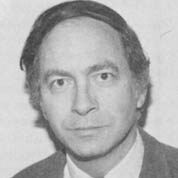
Fellowship Title:
- The Appropriate Technology Movement
Fellowship Year:
- 1978

The Near Side of Utopia
Imagine, if you can, a region of, say, 100,000 people within which all food is locally raised, buildings are constructed from local materials, energy is harnessed from local power sources and all goods necessary for a healthy existence are made using locally available resources and skills. In theory at least, inhabitants of such a region would have direct control over all the basics of life. Moreover, they would be free from influences that might otherwise be imposed from without. They could lead a free and self-fulfilling life guided by their own inclinations rather than the more impersonal, possibly self-alienating ones of large-scale, distantly controlled organizations and networks. Such is the utopia glimpsed by many adherents of a small but growing movement which perhaps will prove to be the most important new one to emerge in the U.S. in the last quarter of the 20th Century. The movement advances under the unlikely banner of technology-” appropriate (or alternative or soft) technology” or “AT” for short-but its aims are profoundly, if not always explicitly, political. “Question authority”
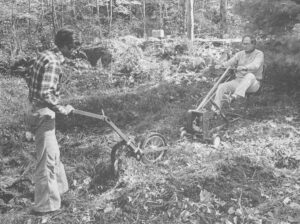
The Mechanical Mule
I strapped my feet into the bicycle-like pedals and began pumping, turning a chain drive that slowly wound a thin steel cable onto a spool. About 50 feet down the field, a plowing attachment that was bolted to the end of the cable caught in the earth as the line tightened. Guided by another person, the plow inched toward me, wedging a neat furrow about half a foot deep into the sodded soil. The Mechanical Mule is the device’s trademarked name, and it probably will go on the market this spring. It would be surprising if this pedal-powered plowing device, which is to carry a price tag of $300 or more, became a best seller. In fact, its manufacturer, Rodale Press, is only planning to make a couple hundred of the things to begin with. Yet Rodale has been immensely successful in other unconventional enterprises, including Organic Gardening magazine; the company has spent more than a year developing the Mechanical Mule; so perhaps they’re on to something. The possibility inspired me to try out a
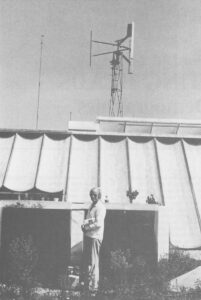
New Alchemy Revisited
“I believe that for engineers, now is going to be a totally interesting time. Things are going to have to be redesigned almost fundamentally.” John Todd, the 39-year-old founder and co-director of the New Alchemy Institute is talking, over lunch, in a yard of the institute’s Cape Cod headquarters. The aquatic biologist, a former member of Canada’s Olympic ski team, uses a carving knife to punctuate and illustrate his points, waving it, scratching diagrams on the lunch table’s rough surface. We had been using the same knife to slice onions for sandwiches; it serves as both production tool and communication device. That, in effect, is how the new Alchemy Institute looks at the cluster of windmills and fish and vegetable production systems at the group’s 12-acre site. One of the leading groups in the emergent “appropriate technology” movement, the institute has been active for nine years designing, constructing and testing alternatives to what its members deem to be inappropriate technologies; they hope these alternatives will help inspire a change in the course of technology in
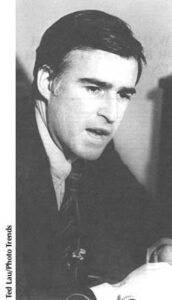
Interview on Energy with Governor Brown: The Path Now Taken?
“Jerry Brown vs. Jimmy Carter: Taking Different Paths to the Future.” That’s the headline in a recent issue of an anti-nuclear periodical called Critical Mass Journal. A lengthy sub-head reads in part: “California’s Gov. Jerry Brown is leading his state down the soft path. Carter continues to rely on nuclear power…both men are watching the political winds, as the 1980 presidential election looms.” The intriguing political scenario glimpsed herein is seen these days by a growing number of energy conscious analysts and advocates. Come 1980, the two main contenders for the Democratic nomination are President Carter and Governor Brown. Nothing very original about that lineup, but the issue that most clearly divides them in this projection is a novel one for the splanchnic grand prix of American politics, which usually revolves around charisma and direct pocketbook issues. Carter and Brown are seen as tilting over “hard” vs. “soft” energy paths, with the main confrontation centered on the increasingly disputed pros and cons of nuclear power. In this scenario, Carter is seen as the defender of
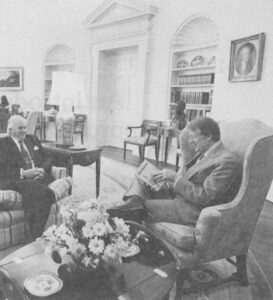
An Introduction to AT —The Appropriate Technology Movement
Possibly “the most important revolution in human thought since the Renaissance.” William N. Ellis, who from his home in Rangeley, Maine, edits a “newsletter-directory” on appropriate technology groups and activities, made this immodest assessment of his subject in a recent issue of the Bulletin of Atomic Scientists. Ellis’ evaluation might be dismissed as a stab at self-fulfilling prophesy, but it is matched in kind — if by no means in kindness — by opponents of appropriate technology. A full issue of the bimonthly magazine of the Edison Electric Institute, an association of electric utility companies, was devoted last summer to challenging a main track of appropriate technology thinking, and this is a sample from that issue: “For the industrialized world to toy with such a set of ideas could be the beginning of an irreversible process leading downward, one from which recovery might be denied as problem piles upon problem and acrimony upon acrimony.” What is this cause that seems to inspire the piling of hyperbole upon hyperbole? “Appropriate technology?” From an informal survey, nine
